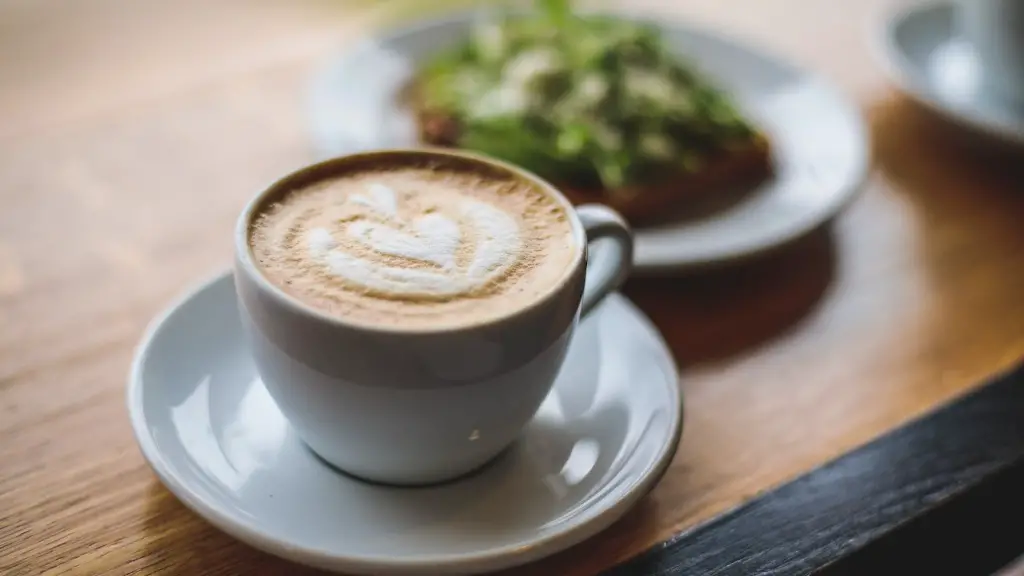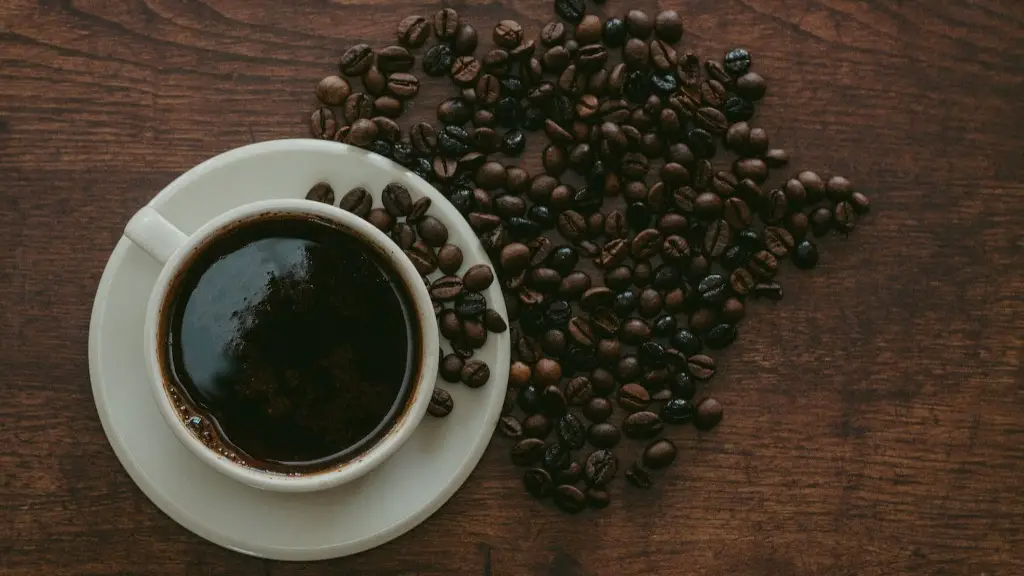We’ve all enjoyed a cup of coffee in the morning to kick-start the day or to help fend off sleep and stay alert and energized. But, there’s controversy surrounding the common beverage, with many wondering if coffee is hydrating or dehydrating.
Coffee typically contains caffeine, certain minerals, and antioxidants, depending on the type. Similarly to other beverages and foods, coffee is composed of both hydrophilic and lipophilic substances, which is why it can be classed as an isotonic drink, meaning it can replace some of the lost fluid after exercise.
A study published in the journal Nutrition Today stated, “moderate amounts of caffeinated coffee, tea, and other beverages do not appear to pose a problem for hydration status, although caffeine can act as a diuretic under certain situations.”
In other words, coffee does cause a slight diuretic effect, but drinking caffeinated beverages in moderation will not impede hydration.
Elizabeth Patton, a nutritionist from a prominent health and wellness institute, says “the idea that drinking coffee will cause dehydration is a common misconception. A moderate dose of coffee taken in the morning or throughout the day with meals is hydrating and won’t affect your daily hydration balance.”
However, Patton recommends that “if you’re planning an intense exercise session or gaming session, it’s best to drink water rather than coffee or other beverages containing caffeine. This is because if you’re devouring large quantities of caffeine, you’ll sweat more and become dehydrated easily.”
This occurs because the caffeine in the drink causes a heightened response in the Adrenaline Gland, resulting in more perspiration. Moreover, caffeine acts as a vasoconstrictor, meaning it makes the blood vessels smaller and can inhibit proper hydration.
Coffee Intake
Most experts agree that caffeine intake should not exceed 500 milligrams per day for healthy individuals. This is equivalent to approximately five (5) cups of brewed coffee; however, this doesn’t take into account the different brands, types, and sizes of cups.
It’s also important to mention that different coffees have varying levels of caffeine. For example, espresso has up to three (3) times the amount of caffeine than a regular drip coffee, meaning those three (3) doses of espresso equal the same as nine (9) doses of drip coffee. It is then easy to exceed the recommended daily intake.
Therefore it’s best to monitor your caffeine intake if you’re opting for coffee as a source of hydration and also ensure you’re drinking plenty of water throughout the day.
To Sweeten or Not to Sweeten
The amount of calories added to the coffee largely depends on the drinks you opt for. A simple espresso shot is five (5) calories and is often unsweetened. However, sweet drinks like latte and mocha are usually around 250 calories due to the added creamy milk, syrups, and other ingredients.
For this reason, Patton advises that people should monitor how much added sugar they’re consuming in their coffee, particularly if they’re drinking coffee more than once a day. She says: “in our modern-day lives, we often overdepend on caffeine for energy and can easily fall into the habit of adding too much sugar without realising how much it’s actually adding to the mix.”
Her suggestion is to opt for an unsweetened black coffee if you’re looking to keep the added calories to a minimum. But if you do prefer something sweeter, you can always opt for almond milk or semi-skimmed milk, or natural sweetener such as stevia or monk fruit.
Coffee and Health Benefits
Although we know coffee is laden with antioxidants and certain minerals, there still hasn’t been any comprehensive research to support the claim that coffee is hydrating. With that being said, there’s no denying coffee can help to improve our physical and mental health.
It is suggested that drinking coffee can influence our metabolism due to the presence of caffeine; this is true as those drinking coffee tend to have higher levels of energy throughout the day. Additionally, coffee is known to boost our focus and concentration; this is due to its stimulating effect.
However, its stimulating effects can have a downside. For those suffering from insomnia, too much caffeine can be disruptive to their sleeping patterns as it can cause difficulty in falling asleep at night, as well as frequent waking.
Finally, according to several studies, coffee has been suggested to reduce the risk of cardiovascular disease, stroke and diabetes. Moreover, coffee consumption has been found to reduce the risk of developing liver cirrhosis; this is due to the presence of caffeine which is kept in the liver and promotes boosted liver metabolism.
Coffee & Physical Activity
Drinking coffee can relieve tiredness and boost energy throughout physical activity as caffeine helps us to stay energized and focused. Moreover, caffeine can help to reduce pain and muscle soreness during or after exercise; this is due to its effect on the Golgi tendon organ and its ability to block pain signals.
Ezekiel Jackson, a prominent sports nutritionist, comments on the importance of proper hydration and energy during exercise sessions. “Hydration and energy during physical activity is crucial for an individual’s performance. It’s important for us to properly monitor our hydration and energy levels, especially during intense physical activities. Coffee is a great source of boosting energy and alertness, but it’s essential to monitor how much you’re consuming.”
It’s also important to note, that caffeine can be rapidly eliminated from our bodies and therefore caffeine-induced concentration is only sustained for a limited period.
How Coffee Effects Caffeine Sensitivity
Like most substances, coffee can affect us differently if we’re overly sensitive to caffeine. The sensitivity of one’s response to caffeine is determined by several factors; this may include age, metabolic rate, health conditions, and individual genetic makeup.
Those with a higher caffeine sensitivity may experience headache, nausea, palpitations, and insomnia when taking in large quantities of coffee. The best way to monitor caffeine intake is to assess feelings before and after coffee consumption. Also, by tracking and recording the concentration of caffeine in the body, it’s much easier to identify whether coffee is having a positive or negative effect on our individual bodies.
Alcohol & Coffee
It’s important to note that most alcoholic beverages are dehydrating and have diuretic values, therefore opting for coffee as a repleacement of some liquid is not advised. Alcohol also generally has a depressing effect on the central nervous system, meaning it can cause fatigue. Similarly, coffee though it does contain caffeine is known to be energizing, meaning the two substances can have conflicting effects when combined.
As there’s no evidence to support the claim that alcohol and coffee can be beneficial together, experts disagree to the idea of combining them in attempts to stay awake. It’s best to avoid drinking coffee after alcohol consumption, as drinking coffee causes the body to become accustomed to the more stimulating effects of caffeine and thus, become less receptive in the future.
Coffee & Tea Consumption
Finally, it’s also worth noting the differences between coffee and tea. Tea normally has lower levels of caffeine and therefore can help to reduce stimulation related issues in comparison to coffee. Interestingly, tea also smells stronger than coffee, and therefore can help to boost one’s alertness due to its stimulating fragrance of certain natural spices.
Moreover, unlike coffee, tea can easily be steeped with various herbal plant ingredients. This can provide the body with vitamins and minerals, further aiding its hydration levels. Tea can even be flavoured with natural essential oils such as lemon, sage, mint, and grapefruit. All these ingredients can help to reduce anxiousness and insomnia and can provide therapeutic benefits for those looking for a soothing effect.
In conclusion, moderation is key when drinking coffee for hydration. To obtain the full benefits of hydration, it’s best to drink a balanced amount of caffeinated and non-caffeinated beverages such as water, tea, and okolyte drinks over the course of the day.





